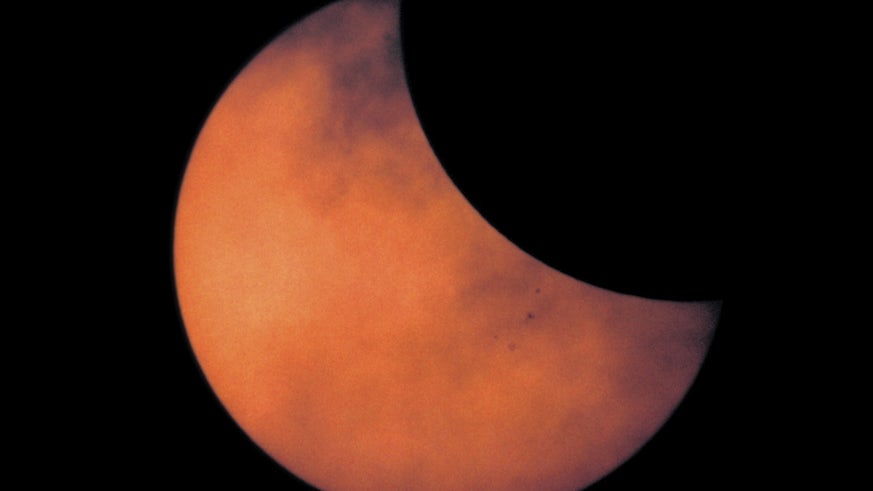Join our experts to safely watch a partial eclipse of the Sun
18 March 2015

Don't miss a rare opportunity to watch a partial eclipse of the Sun, visible in Cardiff on Friday, 20 March, with experts from the School of Physics and Astronomy.
The University, Amgueddfa Cymru - National Museum of Wales and the
Institute of Physics are teaming up to ensure that you can watch this wonderful
phenomenon safely.
There are also a series of talks involving the School of Physics and Astronomy at National Museum Cardiff on Thursday, 19 March to celebrate the event.
From around 0830 on Friday, the Moon will start to pass in front of the Sun. Although it will not completely obscure the Sun as seen from Cardiff, at around 0930 the Moon will appear to cover around 85% of the Sun's disk.
The drop in brightness will be noticeable but it should not be viewed directly without extreme caution.
When observing the Sun, even during eclipse, safety is paramount – the Sun is bright enough to cause serious and permanent damage to eyesight if not viewed safely.
To watch the eclipse safely, visitors are invited to come along to the steps of National Museum Cardiff, between 0830 and 1030 on Friday.
Join the School of Physics and Astronomy, Amgueddfa Cymru - National Museum Wales, and the Institute of Physics to watch the event using specially-designed telescopes, solar projection kits and eclipse glasses.
If viewing the eclipse at home, school or work, the safest way is to project an image of the Sun.
This can be achieved using a simple pinhole camera, or even something as basic as a colander to project the image onto a wall or a piece of card.
Dr Chris North, Research Associate at the School of Physics and Astronomy, said: "Eclipses are one of the most dramatic events in astronomy, and well worth catching.
"Even though we won't see the total eclipse from Cardiff, the partial eclipse will be very striking - even through thin cloud."
In a further celebration of this rare event, National Museum Cardiff will be hosting a series of talks on Thursday, 19 March from 1900-2130. The School of Physics and Astronomy will present talks about the Sun, and what we can learn from eclipses.
Entry is free, and the talks will be suitable for ages 12 upwards.